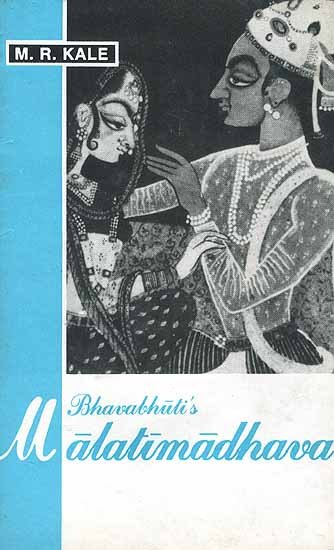Malatimadhava (study)
by Jintu Moni Dutta | 2017 | 52,468 words | ISBN-10: 8120813057 | ISBN-13: 9788120813052
This page relates ‘Prasada Guna (Lucidity)’ from the English study on the Malatimadhava of Bhavabhuti:—A Prakarana type of Drama in ten acts revolving around the love-story of Malati (from Padmāvatī) and Madhava (from Vidarbha). This study discusses the history of its author and the literary, social, religious, historical and cultural aspects of the Malatimadhava.
Part 4.3c - Prasāda Guṇa (Lucidity)
Bhāmaha describes Prasāda (lucidity) as comprehension of the sense even by the womenfolk and children.[1] According to Bharata, the words which indicate the pleasant or charming effect is called Prasāda.[2] Vāmana’s Prasāda as a verbal excellence is the laxity of structure and is an ideal guṇa. It is clearness of meaning brought about by the avoidance of superfluity.[3] Mammaṭabhaṭṭa defines Lucidity as that which quickly pervades the other like fire among dry fuel, or like a clean stream of water, presence of which is proper everywhere.[4] Lucidity has been held to be that excellence, common to all, by virtue of which the comprehension of meaning of words follows on the mere hearing of it.[5] This quality is found almost in all the sentiments.[6]
In the Mālatīmādhava, Bhavabhūti has used Prasāda guṇa (lucidity) in different sentiments.
(i) Prasāda guṇa in Sambhoga Śṛṅgāra Rasa:
Bhavabhūti has very appropriately made the use of Prasāda guṇa in Sambhoga śṛṅgāra rasa. As for instance in the verse sā rāmaṇīyakanidheradhidevatā vā................[7] etc. the comprehension of meaning is easy and only by hearing, the beauty of Mālatī comes to the mind.
(ii) Prasāda Guṇa in Vipralambha Śṛṅgāra Rasa:
Bhavabhūti seems to be very keen in using Prasāda guṇa in Vipralambha śṛṅgāra rasa. As for instance the verse āna ndamiśramadana.....etc IX.47 conveys Mādhava’s pangs of separation due to the absence of his beloved Mālatī and the comprehension of the meaning is easy. Hence, this verse is an example of Prasāda guṇa (lucidity).
Footnotes and references:
[1]:
āvidvadaṅganābālapratītārthaṃ prasādavat /
Kāvyālaṃkāra,II.3
[2]:
apyanukto budhairyatra śabdo’artho vā pratīyate/
sukha śabdārtha saṃyogād prasādaḥ parikīrtyate //
Nāṭyaśāstra,XVI,99
[3]:
śaithilyaṃ prasādaḥ
Kāvyālaṃkārasūtravṛtti,III.I.6
[4]:
śuṣkendhanāgnivat svacchaṃjalavatsahasaiva yaḥ /
vyāpnotyanyatprasādo’asau sarvatra vihitasthitiḥ //
Kāvyaprakāśa,VIII.70
[5]:
śrutimātreṇa śabdāttu yenārthapratyayo bhavet /
sādhāraṇah samagrāṇāṃ sa prasādoguṇo mataḥ //
Ibid.,VIII,76
[6]:
sa prasādaḥ samasteṣu raseṣu racanāsu ca //
Sāhityadarpaṇa,VIII.7
